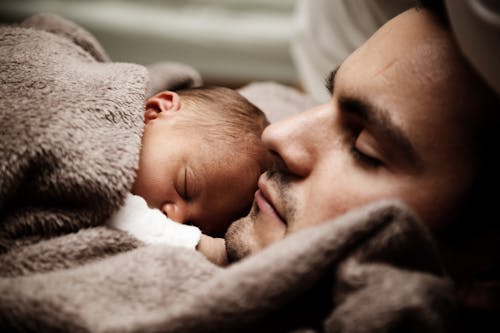
Hour change alert! How to survive the routine change with a baby
In advance of the clocks going back on Sunday October 30, it’s a good idea for parents of young children to be aware of a few strategies to ensure your established sleeper continues to sleep well with the hour change. It can take a few days and as long as a week for the body, both adults and children alike, to adjust to a different mood lighting caused by the change and the fact that our natural body clock is being challenged.
Firstly, ensure that your child is well rested in the run up to this particular weekend. Achieving good naps – if age appropriate – and uninterrupted night-time sleep wherever possible, will ensure that their body is optimally rested in advance and then you can consider one of the following approaches:

1. Do nothing. You and your child can immediately follow the time once the clock changes. If your child historically wakes at 7am and goes to bed around 7pm, the day the clock changes it will say 6am, but it is no different to the day before. Stick to the same schedule – wake no later than 7.30am new time if applicable and put him to bed when the clock says 7pm, but that will really be 8pm. For babies and toddlers who are not sensitive to being over-tired and highly adaptable, they adjust within a few days and re-settle into the same schedule they have been on previous to the change.
2. The second option is to slowly change your child’s schedule over the course of a few days before the time change. For example, on Wednesday October 26, 4 days prior to the time change, put your child to bed 15 minutes later than normal in the hope that he wakes 15 minutes later in the morning – this is determined by our internal clock, so may not always happen. Proceed to offer his naps and meals 15 minutes later. For the next few days put him to bed 15 minutes later each night until the night of the time changes and you will be back to your normal timetable and no further adjustment are required. You will know your own child best and if typically, they are “slow to adapt” this gradual approach may be the preferred option for you.
3. Finally, you could consider sticking to your normal schedule up until the time change and once it kicks in, be flexible and alter the schedule as much as your child can handle. I often find that splitting the difference between the “old” time and the “new” time works well; on the first night they would go to bed at 7pm and this would have been 7.30pm on the day before, so 30 minutes beyond their typical bedtime and then adjust the rest of schedule accordingly.

If you plan to observe option 2 or 3, on the first 2 mornings after the time change avoid starting the day before 5/5.30am “new time” (this would have been 6/6.30 am the day before and then from Tuesday morning onwards treat any wake before 6.00am “new time “as nighttime and proceed on that basis hereafter. Always have a predictable response so that you do not ingrain early waking going forward.
Some parents may continue to struggle with earlier than usual waking and then struggle with nap placements. If your child is a robust sleeper already (at least 8 months plus), try to maintain your naps after 9am and 1.30pm. Temporarily you may need to revert to naps in 8am’s but as quickly as possible revert to 9am or later.
If you child is on a single nap already, then the ideal time for this nap is 1pm. If the early waking makes this hard then bring forward to 12pm and then adjust towards 1pm over a few more days. If your child is super tired before 10am, provide a 20 minute “filler nap” and the main nap about 3 hours later, so that the wake time of the single nap can complement bedtime and avoid an unnecessary ongoing early morning presentation.

Whatever you decide to do, acknowledge that it can take about a week plus for the body to get used to any kind of change in sleeping habits and as a result, you can expect your days and potentially your nights to be a little off.
Don’t try to make the time change do anything for you. You are not looking for a later bedtime or a later wake time; you just want to be on the same structure as you were by the end of the week or so.

Some important points to remember in this frustrating time are:
Decide on which option suits your family unit and child’s temperament best to help with this transition.
The time change can have a more significant impact, regardless of the strategy on children who are not well-rested to begin with resulting in crankiness, early morning waking, night waking and short naps.
Continue to pay attention to your child’s tired signals and act, accordingly, being unafraid of an earlier bedtime if necessary.
Ensure that the room is dark enough at both bedtime and on wake-up and also for naps. You may need to use black out blinds if you are not already.
Have a consistent response if they are struggling to sleep and avoid ingraining inappropriate sleeping habits that you may need to address in the future.

Lucy Wolfe is a Sleep consultant, Co-creational Parent and Relationship Mentor, Author of The Baby Sleep Solution and All About the Baby Sleep Solution, creator of “Sleep Through”, a natural bed and body sleep spray and relaxing rub, and mum of four. She runs a private sleep consulting practice and online courses where she provides knowledge, expertise, and valuable support to families around the world at lucywolfesleepplans.com.
